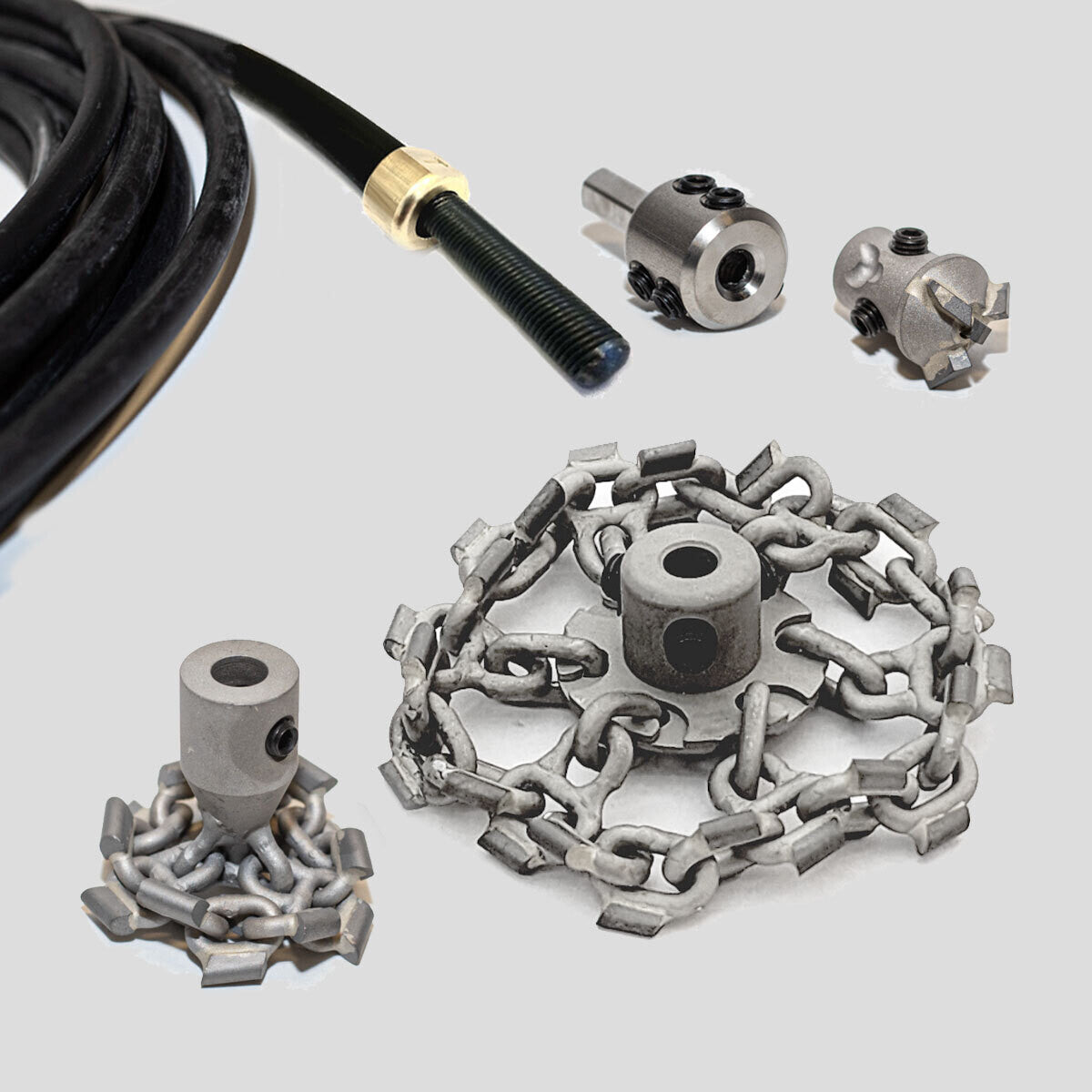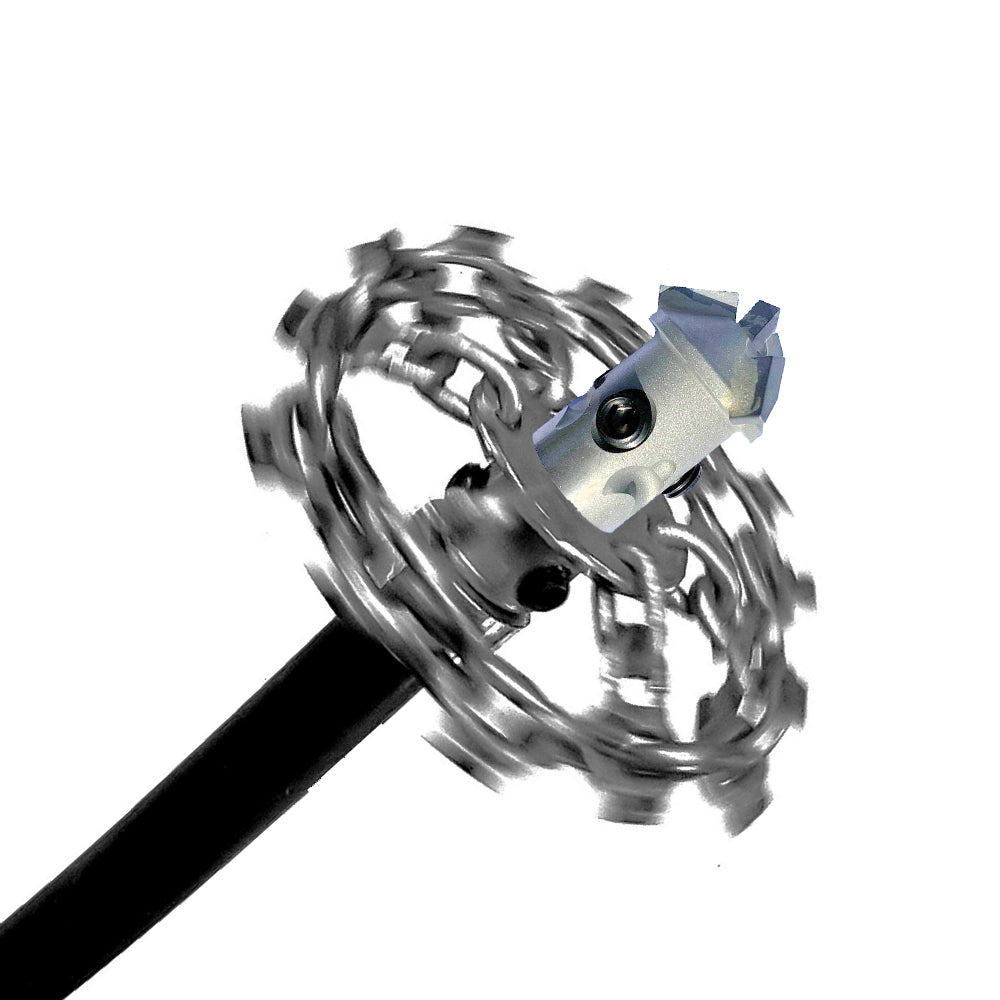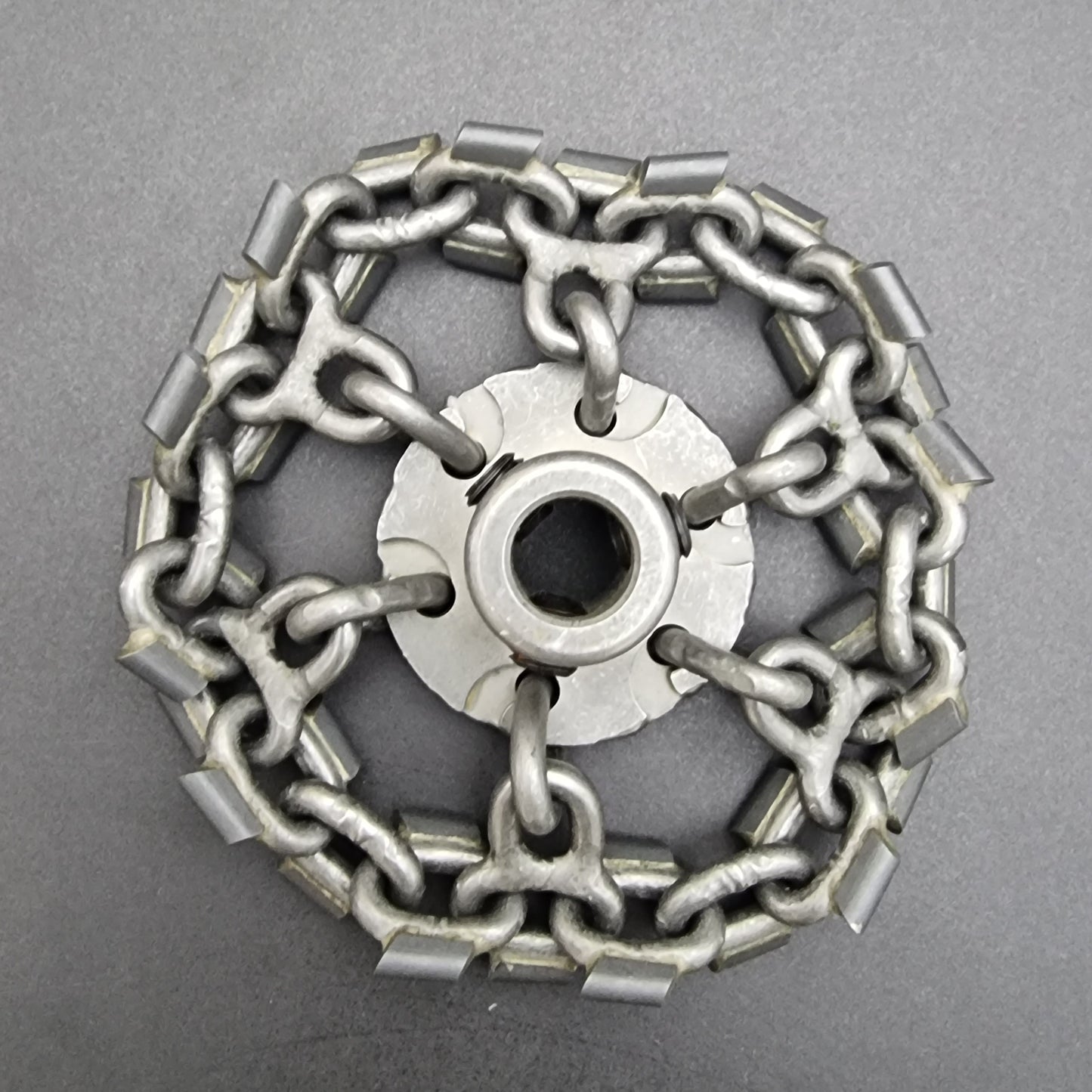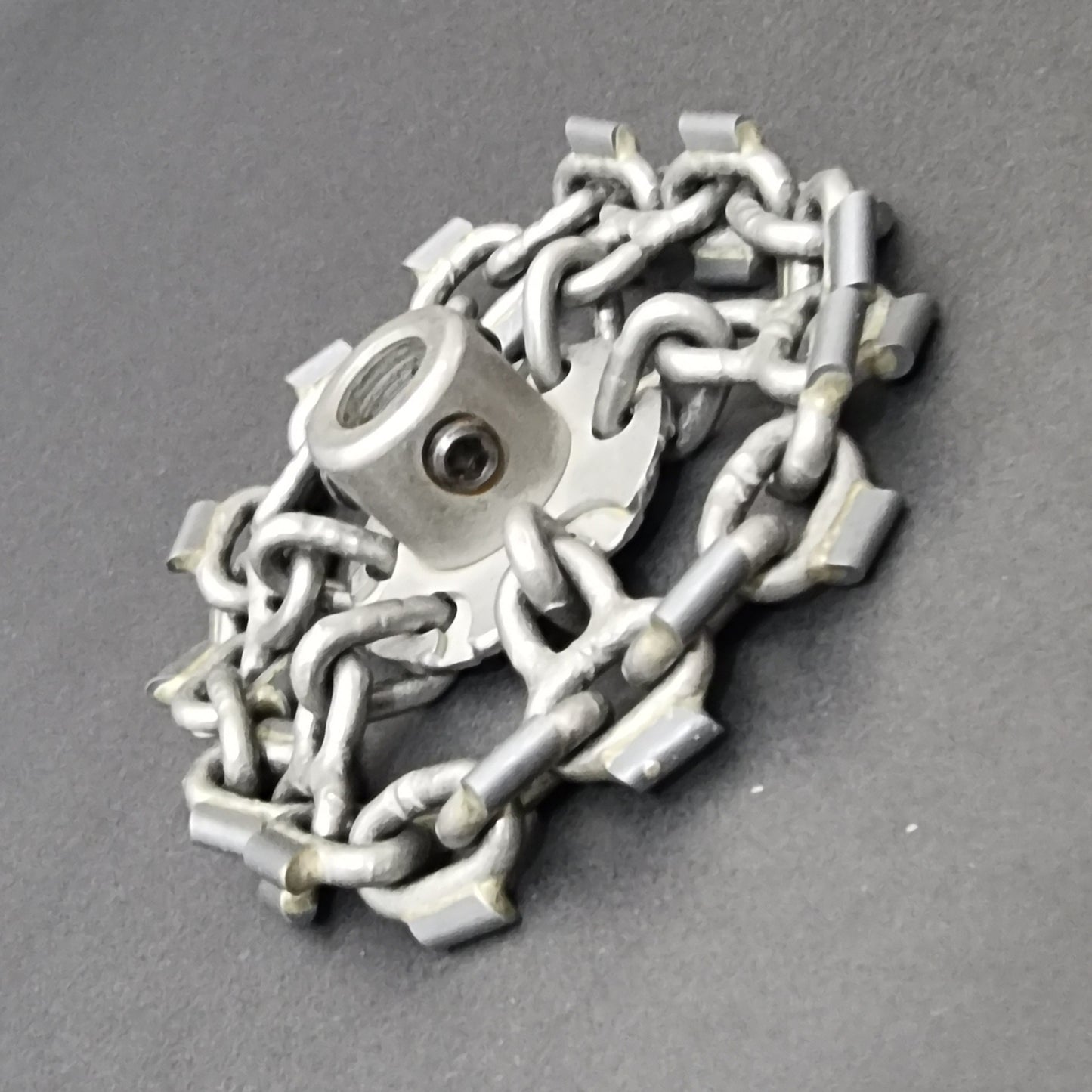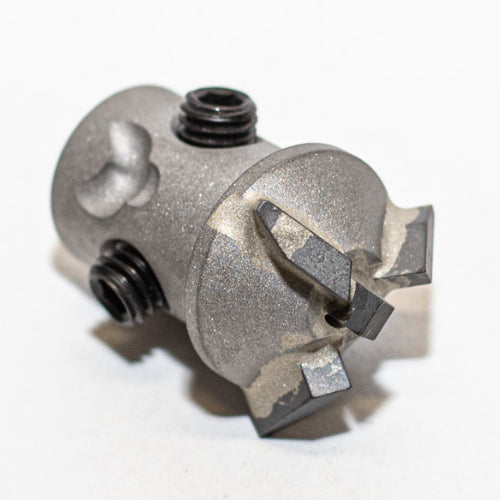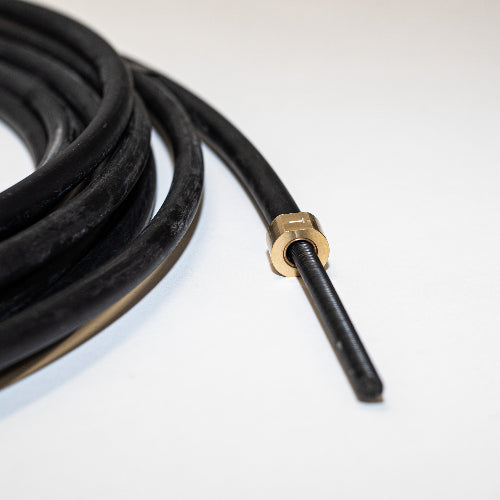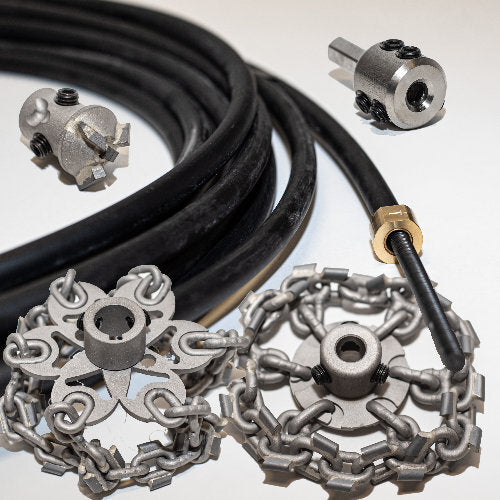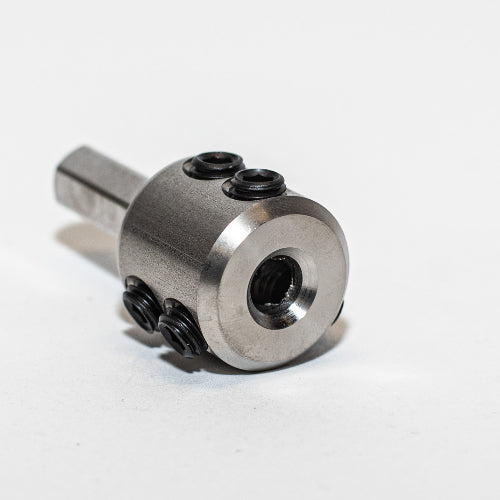Sewer Tools
4" to 6" (100-150mm) Descale & Clean Kit (Cast Iron & Clay Pipes)
4" to 6" (100-150mm) Descale & Clean Kit (Cast Iron & Clay Pipes)
Couldn't load pickup availability
This kit is meant primarily for descaling of lime scale, tuberculation, or other hard incrustations in pipes made from cast iron, cement, vitrified clay or other harder materials.
It is not suitable for PVC because the circular chains that come with this kit have hard alloy bits fused to the individual chain links. This cutting edge could cause damage to PVC pipes if they are kept stationary for too long whilst the shaft is rotating in the pipe.
Lightweight and compact
The tools are lightweight and compact, so you won't find yourself lugging a heavy machine to get to your work area. They can be transported in an elevator and give more options when dealing with blockages in high rise buildings. (You need not be concerned that you might flood someone's apartment.)
Setting up is quick and easy because you only need to attach it to your drill, and you are ready to go.
The kit includes:
- Flex Shaft shaft complete with sleeve and friction rings
- Drill to Shaft Adapter
- Circular Chain (With Hard Tips) DN100 / 4"
- Circular Chain (With Hard Tips) DN150mm / 6"
- Crown Drill Head without chains 25 mm
Facts to consider:
The chains are made from stainless steel to prevent oxidation, and are fastened to the shaft with hex screws. Connecting your shaft with hex screws has a big advantage in that you can repair a kinked shaft quickly and easily, since you can slice off the kinked section of shaft with an angle grinder, and reconnect your shaft within minutes as opposed to replacing the whole shaft.
The outer sleeve of the shaft has friction rings to protect the ends from wear on each end. The rings prevent dirt from building up between the shaft and the sleeve, as this would reduce the efficiency and longevity of the tool.
The sleeve is heat and chemical resistant, and protects your hands whilst handling the shaft.
This makes it safe to use in a confined space with limited access.
More experienced users are using a sewer cleaning camera at the same time to see what they are doing in real time because the sleeve that covers the shaft will prevent damage to the camera cable.
Before you order the longest length possible, consider this:
Most experienced users order the kit with a short shaft for everyday use; and a second shaft and connector in the van. The advantage to this is that on a day-to-day basis, you can carry around less shaft with you into your workspace. If you need extra length you can fetch your secondary shaft from your vehicle and connect it to the one you are working with.
Another advantage to having two separate shafts, is that should you accidentally kink the one you are working with, then you have a backup available immediately. No need to find your grinder to cut off the kinked section of the shaft before you can continue working.
Which shaft thickness should you choose?
The thickness of the shaft depends on the amount of bends that you would like to pass through. The more bends you need to get through, the thinner the shaft should be. However, the thinner the shaft is, the less torque the shaft delivers.
The 8mm (5/16”) flexible shaft is our second most flexible shaft. It has the ability to pass through multiple bends, and has more torque than the 6mm (¼). This shaft is most suitable for pipes with a diameter of 75mm (3”) to 100mm (4”), and will work with blockage removal chains as well as descaling chains.
The 10mm (3/8") flexible shaft is less flexible than the 8mm (5/16) shaft, and yet more flexible than the 12mm (½”). This shaft will navigate through fewer bends than the 8mm (5/16) shaft, but will offer the user similar torque to the 12mm (1/2"). This shaft is suitable for pipes ranging from 75mm (3”) to 150mm (6”).
The 12mm (½”) flexible shaft is our most rigid shaft. This shaft is popular for failed liner removal since it offers the highest torque ratio. The shaft is perfect for descaling and blockage removal of lines ranging from 100mm (4”) to 250mm (10”)
Shaft shrinkage
When we manufacture the shafts we wind them in a long straight line. They are then wound onto a large diameter spool, and later cut into smaller pieces before we assemble them and deliver them to you. This means that when you first use your shaft, you might notice that the ends shrink a little. Usually this is more evident on the drill end. This is perfectly normal since the shaft is subjected to the stresses of multiple bends and torque for the first time. After the first inner strands of the shaft settle into their permanent position the shrinkage will cease. Usually this affects around 3” (75mm) on either end of the shaft. When you notice this, simply cut off the shrunken section with an angle grinder, and reconnect your chains and drill. It is not necessary to weld the ends, but if you prefer to do this please try to avoid too much heat on the shaft.
Lubricate your shaft before first use
Aviation law prohibits us from delivering products which could be considered flammable so we send the shafts without lubricant in the sleeve.
Please be sure to lubricate your flexible shaft before using it, and then check the lubrication every few weeks. This not only ensures the longevity of your shaft, but also makes it more efficient over longer distances. Here is a video we made on how to lubricate your shaft:
Points to note:
These products are intended to be used by trained professionals in the sewer cleaning trade. They do not come with instructions. If you would like training please make contact with us, and we will guide you.
Product pictures may vary in color and design depending on the size and diameter that you order.
